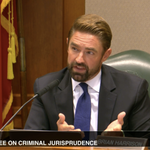DPIC Database: Innocence Database
A Death Penalty Information Center database of every death-row exoneration since 1972.
DPIC Analysis: Causes of Wrongful Convictions
The Most Common Causes of Wrongful Death Penalty Convictions: Official Misconduct and Perjury or False Accusation
Overview
Given the fallibility of human judgment, there has always been the danger that an execution could result in the killing of an innocent person. Nevertheless, when the U.S. Supreme Court held the administration of the death penalty to be unconstitutional in 1972, there was barely any mention of the issue of innocence in the nine opinions issued. Although mistakes were surely made in the past, the assumption prevailed that such cases were few and far between. Almost everyone on death row was surely guilty.
However, as federal courts began to more thoroughly review whether state criminal defendants were afforded their guaranteed rights to due process, errors and official misconduct began to regularly appear, requiring retrials. When defendants were now afforded more experienced counsel, with fairly selected juries, and were granted access to scientific testing, some were acquitted and released. Since 1973, 200 former death-row prisoners have been exonerated of all charges related to the wrongful convictions that had put them on death row.
At Issue
It is now clear that innocent defendants will be convicted and sentenced to death with some regularity as long as the death penalty exists. It is unlikely that the appeals process—which is mainly focused on legal errors and not on factual determinations—will catch all the mistakes. Reforms have been begrudgingly implemented, increasing both the costs and the time that the death penalty consumes, but have not been sufficient to overcome human error. The popularity and use of capital punishment have rapidly declined as the innocence issue has gained attention. The remaining question is how many innocent lives are worth sacrificing to preserve this punishment.
What DPIC Offers
DPIC has led the way in highlighting the issue of innocence. Its list of exonerated individuals is presented in a searchable database, with links to more complete descriptions of each case. DPIC has issued a series of reports on this issue, collecting the latest information on why so many mistakes occur. It also follows the related questions of whether innocent individuals have already been executed and whether some defendants are in fact innocent, despite not being completely exonerated in the eyes of the law.
News & Developments
News
Oct 23, 2024
The Limitations of DNA Evidence in Innocence Cases

Death-sentenced prisoners with credible evidence of innocence have gained significant attention this month with the execution of Marcellus Williams in Missouri, the near-execution of Robert Roberson in Texas, and the U.S. Supreme Court arguments in Glossip v. Oklahoma. There is a common misconception that DNA evidence is widely available in all cases and central to exonerations, but the reality is that DNA exonerations in death penalty cases are relatively rare. DPI has identified 34…
Read MoreNews
Oct 21, 2024
Testimony at Texas Legislature Does Not Include Robert Roberson But Witnesses Confirm Serious Concerns about the Possible Execution of an Innocent Man
The Texas House Committee on Criminal Jurisprudence heard testimony on Monday October 21, 2024 from novelist John Grisham, talk show host “Dr. Phil” McGraw, but not its expected star witness, Robert Roberson, whose subpoenaed testimony resulted in a dramatic last-minute stay of execution on October 17th from the Texas Supreme Court. Legislators said they could not reach an agreement with the Office of the Texas Attorney General to facilitate Mr. Roberson’s in-person testimony, and Committee…
Read MoreNews
Oct 16, 2024
Judge Denies Request to Vacate Oct. 17th Execution Date for Robert Roberson: He Now Awaits Clemency Decision from Gov. Abbott
Update: The Texas Board of Pardons and Paroles denied clemency for Robert Roberson on October 16,…
Read MoreNews
Oct 15, 2024
Joseph Giarratano, Former Death Row Prisoner and Prison Reform Advocate, Has Died
Joseph Giarratano (pictured, center) died on October 6, 2024. He had spent nearly forty years in prison, many of them on death row, for a crime he maintained he did not commit. During his time behind bars, he sought to improve prison conditions and secure access to attorneys. After being paroled in 2017, he worked at the University of Virginia’s Innocence Project, continuing his work to assist incarcerated…
Read MoreNews
Oct 11, 2024
French and German Embassies Host a Discussion on Innocence and the Death Penalty
On October 11, 2024 the Embassies of France and Germany hosted a discussion on the question of innocence and the death penalty at the residence of the French Ambassador in Washington, D.C. Panelists included Herman Lindsey, a death row exoneree and Executive Director of Witness to Innocence; Vanessa Potkin, Director of Special Litigation at the Innocence Project; and Emmjolee Mendoza Waters, Director of the Death Penalty Abolition Program at Catholic Mobilizing Network. The approximately 75…
Read More




